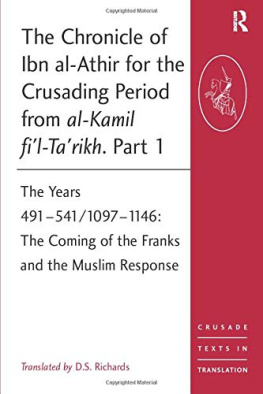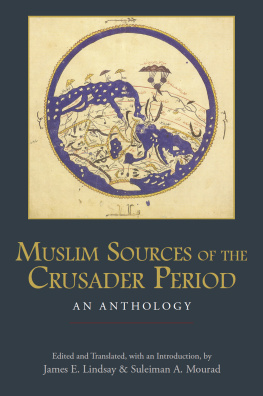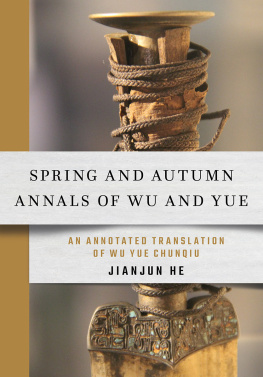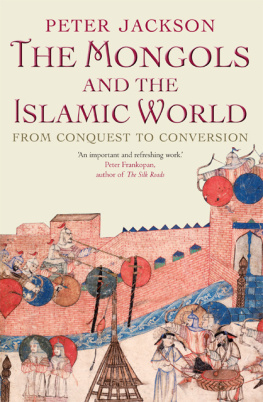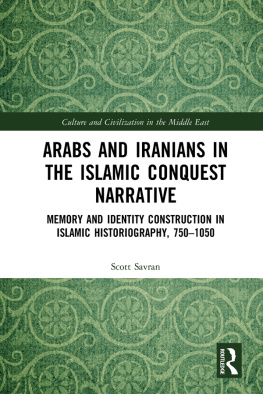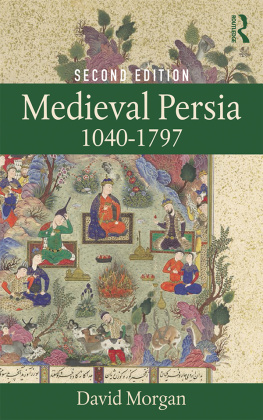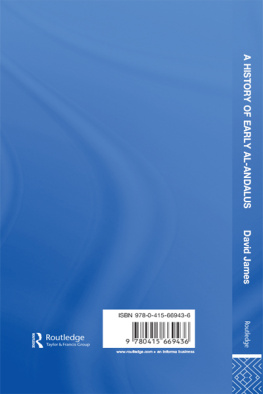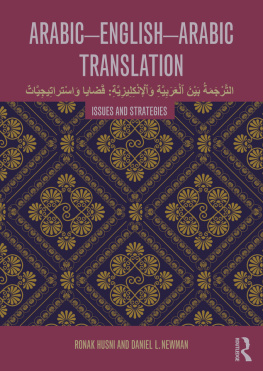THE ANNALS OF THE SALJUQ TURKS
STUDIES IN THE HISTORY OF IRAN AND TURKEY 10001700 AD
Edited by
Carole Hillenbrand
University of Edinburgh
This series publishes important studies dealing with the history of Iran and Turkey in the period 10001700 AD. This period is significant because it heralds the advent of large numbers of nomadic Turks from Central Asia into the Islamic world. Their influence was felt particularly strongly in Iran and Turkey, territories which they permanently transformed.
The series presents translations of mediaeval Arabic and Persian texts which chronicle the history of the mediaeval Turks and Persians, and also publishes scholarly monographs which handle themes of medieval Turkish and Iranian history such as historiography, nomadisation and folk Islam.
THE ANNALS OF THE SALJUQ TURKS
Selections from al-Kamil fil-Tarikh of Izz al-Din Ibn al-Athir
translated and annotated by
D. S. Richards
First published 2002
by Routledge
2 Park Square, Milton Park, Abingdon, Oxon, OX14 4RN
Simultaneously published in the USA and Canada
by Routledge
270 Madison Ave, New York NY 10016
Routledge is an imprint of the Taylor & Francis Group
Transferred to Digital Printing 2010
2002 D. S. Richards
Typeset in StempleGaramond by LaserScript Ltd, Mitcham, Surrey
All rights reserved. No part of this book may be reprinted or reproduced or utilised in any form or by any electronic, mechanical, or other means, now known or hereafter invented, including photocopying and recording, or in any information storage or retrieval system, without permission in writing from the publishers.
British Library Cataloguing in Publication Data
A catalogue record of this book is available from the British Library
Library of Congress Cataloging in Publication Data
A catalog record for this book has been requested
ISBN10: 0700715762 (hbk)
ISBN10: 0415583136 (pbk)
ISBN13: 9780700715763 (hbk)
ISBN13: 9780415583138 (pbk)
Publishers Note
The publisher has gone to great lengths to ensure the quality of this reprint but points out that some imperfections in the original may be apparent.
Contents
The historian and scholar of Prophetic Tradition (Hadith), whom we know by his family name, Ibn al-Athir, lived in momentous times. His early manhood had seen the growth and the major successes of the Muslim moral, political and military response to the Crusades in Greater Syria and Mesopotamia (al-Jazira) and he lived into the first few decades of the thirteenth century A.D., long enough, for sure, to hear vivid evidence of and to fear, even if he did not experience directly, the dreadful destruction caused by the first Mongol incursion into the central lands of Islam.
Izz al-Din Abul-Hasan Ali (to give him his full personal name) was born in the town of Jazirat Ibn Umar (the modern Cizre) on the Tigris north of Mosul on 4 Jumada I 555/13 May 1160. His family was of some local standing. They owned lands in the Mosul area and had some trading interests. His father Muhammad served the ruling Zangid dynasty as a local official. Whether Ibn al-Athir himself ever had any employment, official government employment or otherwise, is not known, but his two brothers, apart from their activities in the fields of religious and literary studies, did follow their fathers footsteps as government servants. His elder brother, Majd al-Din Mubarak (born 544/1149, died 606/1210) served as a Zangid official (both he and his father were sources of information for Ibn al-Athir when the latter came to write his monograph on the dynasty) and he was also the author of philological and religious works. The third and youngest son, Diya al-Din Nasr Allah (born 558/1163, died 637/1239) had a more brilliant, though chequered, political career, serving Saladin late in his reign and becoming vizier of Saladins son, al-Afdal Ali. Apart from his professional correspondence, which was preserved as a guide to good style, Diya al-Din wrote several noteworthy books on literary criticism.
The middle brother, our author, studied in his home town and in nearby Mosul. From scattered comments in his own writings we know of his whereabouts from time to time, but this information does not add up to a coherent picture of his formative, or his mature, years. He went on Pilgrimage to Mecca in 576/1181, and returned via Baghdad where he studied further. He was back in Mosul by 581/118586 when Saladin besieged the city for the second time. After the great military successes of Saladin that led to the reconquest of Jerusalem, Ibn al-Athir spent some time in Syria. During 584/118889 he was present at Saladins sieges of Krak des Chevaliers and Bourzey, and we find him in Damascus in 590/1194 undergoing a siege that was the result of an internal Ayyubid dispute. Although he mentions that he was again in Mosul in 622/1225, the well-known historical biographer Ibn Khallikan met him in Aleppo in 626/1229 and described him as being perfect in accomplishments, of generous character and very modest. In his later years he enjoyed the patronage of the Atabeg of Aleppo Shihab al-Din Tughril and also that of Badr al-Din Lulu, the former emir of the Zangids who had taken over power in Mosul. It was in Mosul that Ibn al-Athir died during the month of Shaban 630/June 1233, aged seventy-three.
The major work for which Ibn al-Athir is best known in modern times is his large-scale chronicle of Islamic history. He gave it the title al-Kamil fil-Tarikh, which one may translate as The Perfect or The Complete [Work] of History. This is the work from which the present translation has been made. A fuller description of it will be given below. It was, however, not the only literary production of Ibn al-Athir.
His studies as an alim, a scholar of Islamic religious sciences, resulted in a biographical dictionary of the Companions of Muhammad who were transmitters of Prophetic Tradition (al-Hadith), to which he gave the somewhat fanciful title The Lions of the Thicket concerning Knowledge of the Companions (Usd al-Ghaba fi Marifat al-Sahaba). This work is a compilation from earlier authorities between whose works there were discrepancies. The names of the Companions are arranged in alphabetical order and sigla indicate in which of the earlier authorities the names appear. The authors introduction has some rather conventional explanations of his original plan to write such a dictionary, how unspecified obstacles prevented him and how scholars encouraged him during his visit to Jerusalem to make a start. The final revision was carried out back home in Mosul.
The only other strictly historical work which he produced was the monograph on the dynasty with which his family had been closely identified, that of the Zangids. This was the dynasty effectively founded by the Saljuq general and provincial administrator, Zangi, although, as will be seen in this present volume, Ibn al-Athir traces their fortunes back to Zangis father, qsunqur, who had served the Sultan Malikshah. This monograph, entitled al-Tarikh al-Bahir fi al-Dawla al-Atabakiyya Whether certain implications that arise from the ordering of some material are always deliberately intended or whether they are sometimes the result of an awkward handling and abbreviating of his sources remains an open question.
The Kamil is a chronicle of the Islamic world, which starts from the Creation and has sections on Persian and Roman history and also history derived from the Hebraic tradition, before arriving at the mission of the Prophet Muhammad. It then continues in annalistic fashion up to the year 630/1233, just a couple of years before the historians death. For all the years covered by the chronicle of al-Tabari, which ended at the year 302/915, that historian is Ibn al-Athirs principal source, although in his introduction he claims that he was able to supplement it from other chroniclers whom he does not name. Indeed, the main modern criticism of Ibn al-Athir is that in the body of his text he rarely indicates his sources. In some cases over the whole range of years covered it is possible to compare the
Next page

